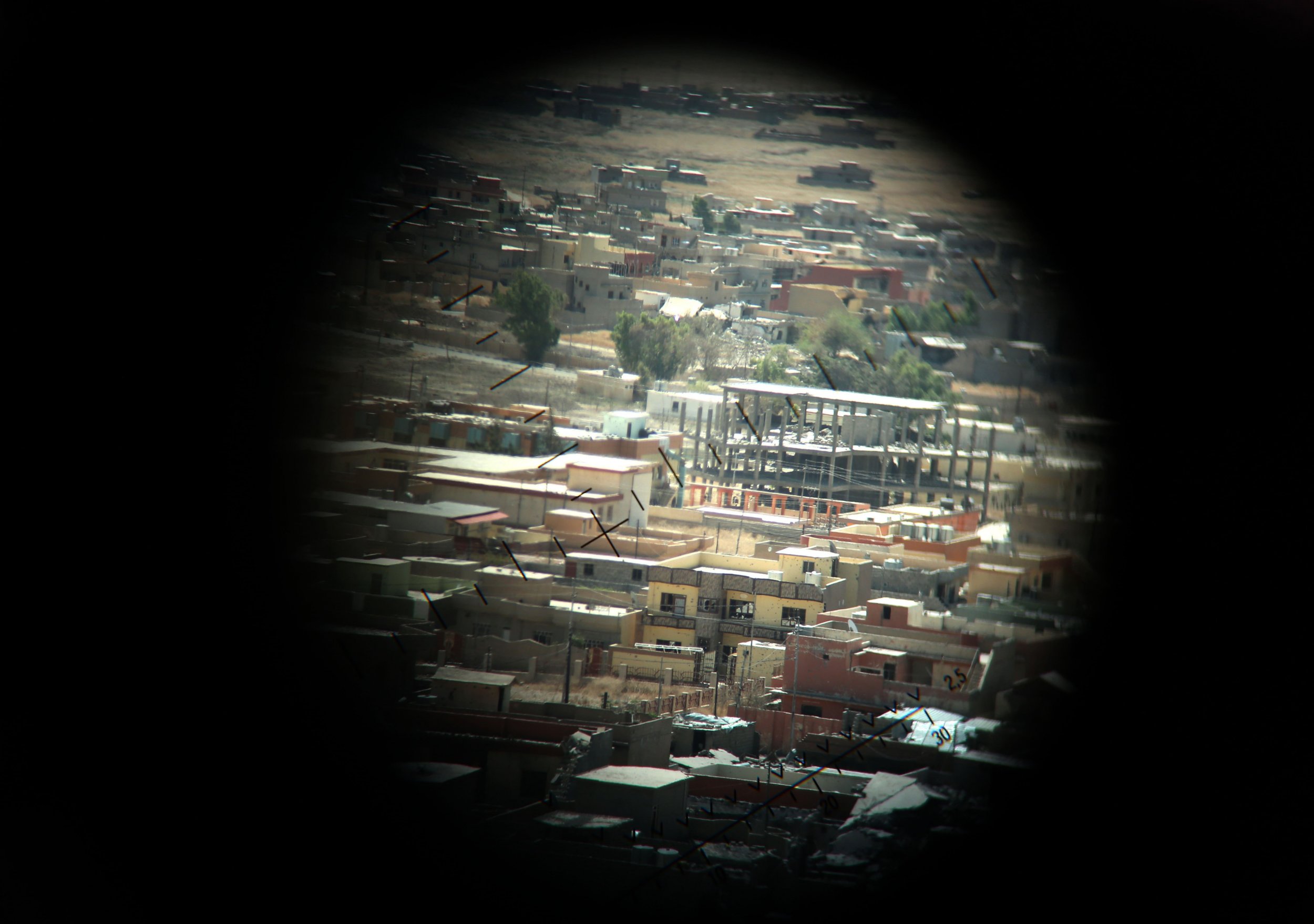
The U.S.-led coalition's effort to recapture the Iraqi city of Mosul from the Islamic State militant group (ISIS) has begun, according to the top U.S. envoy in the fight against the extremists.
"It's already started," Brett McGurk said on Wednesday at a speech at the American University of Iraq in the northern Iraqi Kurdish city of Sulaimani. "It's a slow, steady squeeze."
The coalition is conducting almost daily air strikes against ISIS personnel and infrastructure in the city. Iraqi forces are stationed just kilometers from the militants' stronghold and the Kurdish Peshmerga have recaptured territory from the group north of the city.
Since December, when the coalition recaptured Ramadi from ISIS in eastern Iraq, defense officials and analysts started to shift focus to Mosul, a stronghold of the radical Islamist group and the country's second-largest city. ISIS overran the mostly Sunni city in June 2014. Later, the group's appointed caliph Abu Bakr al-Baghdadi chose Mosul as the place where he declared the creation of the "Islamic State."
In the past, U.S. officials have offered different estimates on the timing of the offensive and its longevity. In February of last year, U.S. officials said a Mosul offensive was set for the spring of 2016. But Washington shelved these plans after Ramadi fell to ISIS last May. U.S. defense officials estimated last month that any large-scale attempt to recapture Mosul would not begin until 2017. Iraqi Prime Minister Haider al-Abadi has pledged to remove ISIS from the city by the end of the year, while other coalition officials have refused to give a timeline, adding that the start of any offensive is too far away.
McGurk's statement suggests the coalition does not plan to bring about the collapse of ISIS in the city by a rapid and large mobilization of troops. The current plans seem to involve patiently encircling the group and cutting it off from the outside world before a major invasion. "The formula is working," McGurk said. "It's slow, but it's working."
Colonel Steve Warren, the U.S.-led coalition spokesman, also recently mentioned how the campaign to retake Mosul. "Preparations to take Mosul are happening now," he tweeted on Tuesday, "including precision air strikes by coalition forces."
Those strikes have started targeted ISIS's financial infrastructure and cash reserves, and U.S. officials estimate they've destroyed "millions" of dollars.
On Friday, Warren confirmed the coalition had also assisted Iraqi forces with a leaflet drop into Mosul in a bid to restore morale inside the city, listing the cities that ISIS had been defeated, such as Ramadi, Tikrit, Baiji and Sinjar.
"According to some reports, we've seen ISIL actually lock down the population in the neighborhood where the leaflets fell and they went over there—ISIL went there and picked up all the leaflets," he said in a press briefing, using another acronym for ISIS.
"It's kind of a leaflet intended to let the population in Mosul that they haven't been forgotten and that the Iraqi security forces are going to come—are going to come liberate them."
In a press briefing on February 17, Warren confirmed that the coalition had established an operations center in the Iraqi Kurdish town of Makhmour, some 44 miles from Mosul, where the 15th Iraqi military division, along with U.S. advisers are stationed. Those forces, Warren said, will "begin the process of generating the combat power that's necessary to…progress this campaign with an eventual goal of Mosul."
Uncommon Knowledge
Newsweek is committed to challenging conventional wisdom and finding connections in the search for common ground.
Newsweek is committed to challenging conventional wisdom and finding connections in the search for common ground.
About the writer
Jack is International Security and Terrorism Correspondent for Newsweek.
Email: j.moore@newsweek.com
Encrypted email: jfxm@protonmail.com
Available on Whatsapp, Signal, Wickr, Telegram, Viber.
Twitter: @JFXM
Instagram: Read more
To read how Newsweek uses AI as a newsroom tool, Click here.








